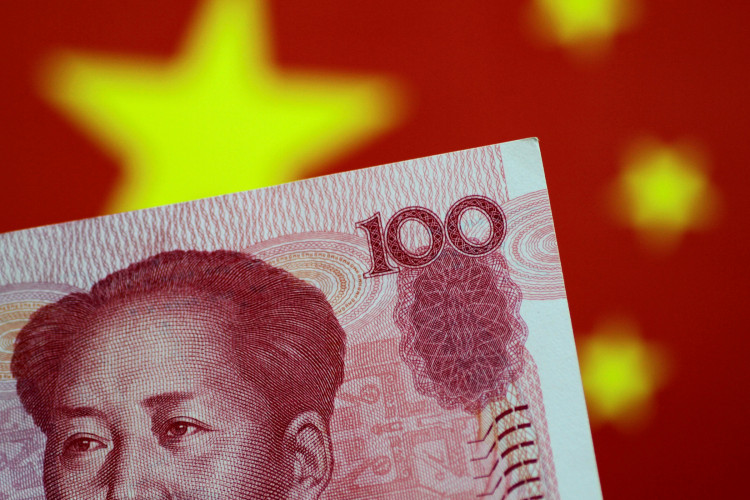The onshore yuan closed against the dollar at 7.1747 on Monday, marking a rise of 718 basis points from the previous trading day and reaching its highest point since August 2. Analysts suggest that as the Federal Reserve's interest rate hike cycle nears its end, the yuan's passive depreciation pressure has eased. Additionally, China's ongoing economic recovery and warming relations with the U.S. could continue to bolster the yuan's value against the dollar in the short term.
Since November, the yuan has reversed its previous two-month stagnation against the dollar, embarking on a rebound. By Monday's close, the yuan had appreciated by about 2% from the end of October.
Wang Youxin, a senior researcher at the Bank of China Research Institute, told Interface News that October's higher-than-expected drop in U.S. inflation led to cooled expectations for further Fed rate hikes. Concurrently, the U.S. economy has shown signs of a downturn in the fourth quarter, evidenced by a cooling labor market, reduced personal consumption expenditure, and a significant drop in the Manufacturing Purchasing Managers Index (PMI). Currently, the yield on 10-year U.S. Treasury bonds has fallen below 4.5%, and the dollar index has dropped below 104, reducing external pressure on the yuan exchange rate.
On the other hand, Wang noted that since the third quarter, China's fiscal and monetary policies have continuously intensified support for the real economy, gradually improving the domestic economic recovery momentum. The Central Financial Work Conference recently further signaled financial support for the real economy, boosting market confidence in the economy's continued recovery next year and gradually pulling the yuan out of its previous over-adjustment state.
"The yuan exchange rate is gradually reaching a turning point, with an appreciation channel gradually opening. In the short term, there may still be fluctuations, but as domestic and international situations evolve further towards the end of the year, more positive domestic factors will emerge, and the yuan is expected to continue its recovery trend next year," said Wang Youxin.
Additionally, some analysts believe that recent signs of warming relations between China and the U.S. have also contributed to the yuan's surge.
"The recent meeting between the heads of China and the U.S. has marginally warmed relations in the short term, also boosting the yuan's appreciation. Considering value factors, supply and demand factors, expectations, and institutional factors, the yuan is likely to rise first and then stabilize in 2024," said Dong Qi, chief macro analyst at Guotai Junan Securities, in a research report.
He further stated that although the yuan has an appreciation trend, the extent of appreciation is expected to be limited due to the relative weakness of various factors.
Wang Qing, chief macro analyst at Dongfang Jincheng International Credit Assessment Co., Ltd., also believes that the yuan's appreciation may be limited. He pointed out that with macro policies continuing to maintain a stable growth orientation and ongoing support for the real estate sector, China's economy is expected to continue its stabilizing trend next year, which will support the yuan exchange rate. However, a "V-shaped" rebound in the real estate sector next year is unlikely, and the economic growth rate is expected to remain around 5.0%, making a significant appreciation of the yuan against the dollar less probable.
"However, the direction of the foreign exchange market is notoriously unpredictable. For foreign trade companies, it is advisable to adhere to the principle of risk neutrality and avoid one-sided bets. Under conditions of controllable comprehensive costs, they can consider using financial derivatives in the foreign exchange market to hedge against yuan fluctuations and reduce foreign exchange risk exposure," said Wang Qing.






